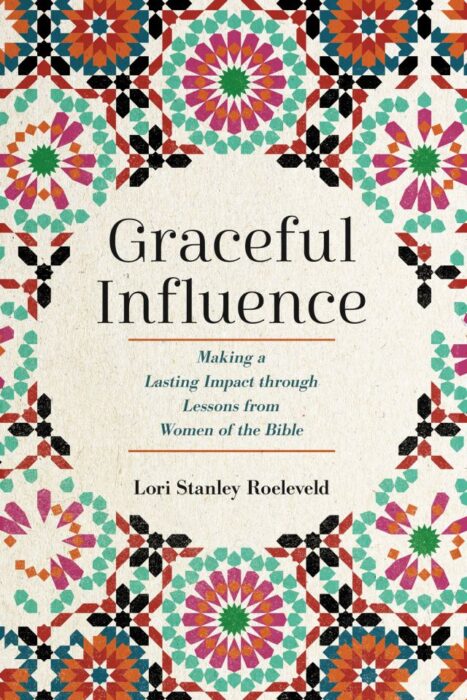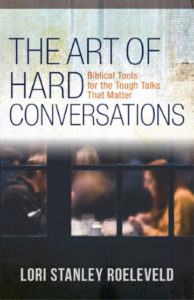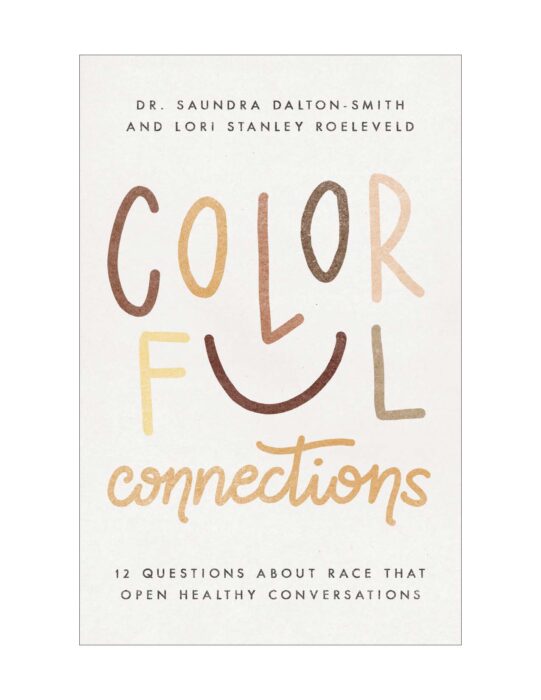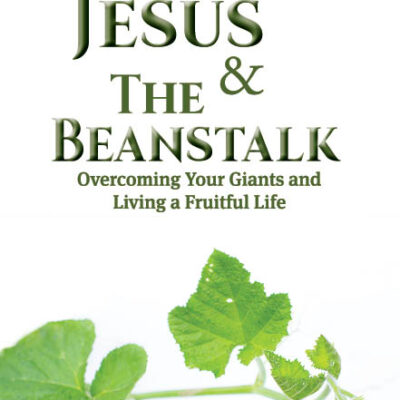 Do you avoid hard conversations? Do you have an aversion to speaking the truth when it’s unpleasant? That’s not uncommon.
Do you avoid hard conversations? Do you have an aversion to speaking the truth when it’s unpleasant? That’s not uncommon.
Me, I have an aversion to yeast. I think it’s creepy when you add the warm water to a packet of yeast and it bubbles as it begins to activate. Totally creeps me out.
Here’s the thing. Within the forces of darkness, there are expert political operatives. These operatives aren’t concerned with the election of presidents but with the election of lies to the office of truth. They then promote these lies, like yeast, throughout the body of Christ.
Humans can take anything good and twist it to where it isn’t. That’s no secret. We can hijack the simplest commands of Christ and make a mess of them. As the family of God, we live within a framework of grace and redemption so when we create a mess, we can receive correction and try again. Of course, there’s fall out, but there’s also restoration. That is truth.
The demonic operatives, however, pounce on the messes we make and spin the lie that since we twisted the initial command and created a mess, we can’t be trusted any longer then, with the command. That command is so dangerous and we’re so faulted, they whisper, that it’s best if we simply decide not to go near it again.
In some quarters, evil operatives convince people that specific commands are perhaps antiquated, misinterpreted, or completely beyond  comprehension because no one can possibly know the specific nuance of the original Greek. In other quarters, they simply whisper the age-old serpentine question, “Did God really say . . ?”
comprehension because no one can possibly know the specific nuance of the original Greek. In other quarters, they simply whisper the age-old serpentine question, “Did God really say . . ?”
I do find it amazing that God entrusted His people with the task of loving one another and furthering His kingdom on earth. Just from observing my own life, I marvel at His mode of operation. I can muck up my day and four relationships before my feet hit the floor. And yet, the God who is fearless did, in fact, choose to involve us, individually and corporately, in the work of kingdom building.
He knew there would be a learning curve with His commands. He could have created a systematic work around. Instead, He essentially said “You people, you glorious messes I sent my only Son to die to save, I want you now to love one another, to serve one another, to tell people who haven’t heard about my Son His story, and I even want you in one another’s lives – encouraging, correcting, and generally trying to be a family. When you mess it up (as you will) I want you to ask and offer forgiveness and try again. Ready. Set. Go.” (Proof positive that God is absolutely fearless.)
Why, then, are we avoiding hard conversations? God commanded us to correct one another. There are numerous verses on the subject. Of course, historically, globally, personally, and locally, we’ve done it badly. We over-correct or under-correct. We choose our words poorly. We show favoritism in our correction. We ignore correction directed toward us. Yes. All that is true.
It’s understandable, then, that the operatives of darkness have seized upon our mistakes as an opportunity to elect a lie to the position of truth. This is the lie that we have no business being in one another’s business. That if we don’t have something “nice” to say, we should say nothing. That it’s so dangerous to engage in hard conversations only professionals should try it.
 The truth is, avoiding correction, neglecting to confront one another, ignoring a brother or sister who is going off track can lead to as much harm as doing it badly.
The truth is, avoiding correction, neglecting to confront one another, ignoring a brother or sister who is going off track can lead to as much harm as doing it badly.
We are children. If we fall off our bikes the first twenty times we try to balance and ride, we may need a supportive teacher or training wheels or just more maturity but we shouldn’t give up on learning to ride. Likewise, if we’ve tried to correct a brother or sister and we did it badly, causing harm to them or to ourselves, we should seek forgiveness, make amends, get some instruction or wise guidance on how to exhort, but then we should try again.
It doesn’t have to be that hard.
A Christian person I know was at a church event standing beside another Christian who let slip some comments that were unnecessary and hurtful. The person looked at the other Christian and simply stated, “That just sounds to me like a really bad attitude.” Because this other Christian loves God, the Lord used the comment to do good soul work. At the end of the event, the other Christian turned to the person and said, “I apologize for my comments. I realized when you said that that you were right. Here’s where my comments came from.” The first person was able to help the other believer find a fairly simple solution to the cause of their aggravation. Everyone walked away better for the exchange.
Jesus warned the disciples, “And he cautioned them, saying, “Watch out; beware of the leaven of the Pharisees and the leaven of Herod.” Mark 8:15 (ESV) The leaven (yeast) of the Pharisees is hypocrisy while the leaven of Herod is more likely stubborn unbelief or worldliness. Our modern society has a serious problem with rampant yeast and we should find it unnerving.
Some of you reading this are remembering times when you were seriously harmed by overzealous or Pharisaical correction and I apologize if this post has been a trigger for bad memories. I’ve been a victim of this myself but I still see the benefit of us learning to have hard conversations within the body of Christ because there’s corruption happening for lack of it.
I’m going to write several posts with some tips that may help us improve our ability to have these conversations without causing permanent damage and I’m interested in having a conversation about this subject if you are. What are your questions, experiences, or counsel? Just because a thing is hard, that doesn’t make it impossible – especially with God – even for us mess-makers.
We need to face even the giants of our own making. 
The Art of Hard Conversations https://t.co/BdDb9Wrq1X how to confront without causing eternal damage – #amwriting #TopplingGiants
— Lori Roeleveld (@lorisroeleveld) September 14, 2016











The Conversation
I have a tendency to speak the truth sometimes, and I have indeed been harmed by both inner and outer Pharisees to the point that I have taken the position that it is better to stay silent. It seems there may be some yeast growing in me that I need to do something about.
Thank you…** again **. I look forward to the next posts about this.
I can surely use the advice, help and insight.
Another homerun. Excellent points that we all need to take to heart.
I know what it’s like to be zealously corrected. In a former church, a woman (Jean) took this type of thing seriously. We called it being hit by the Jean Train. I spoke to her about it – she turned it around quickly to be my fault she had to be hard on me. The Wednesday morning Bible study ladies talked about it a lot. A few of us talked to her individually. She was RIGHT, we were WRONG. So, we went to the pastor about it. Nothing was ever done. I’m sure HE was worried about being hit by the Jean Train! The consequence was that several women dropped out of Bible study. I think someone finally started another one in her home. Sad, huh?
I’ve learned to pause when someone corrects me. And I’ve also learned to pause before speaking to someone. There’s a lot of benefit of counting to ten! And that’s been a long time coming, because I tend to knee-jerk. That always gets me in trouble. 🙂
That’s a great example, Pam, of what happens when only those who are bad at confrontation exercise it. This woman sounds as though she needed support around having productive correctional conversations to avoid becoming the church bully. Instead, despite you’re attempts (good for you) to steer her in the right direction, she just became a bit of a “church lady” stereotype. It’s very likely she loves God and simply wanted to help others follow Him more closely. With effective shepherding, this might have turned out differently. (I like to imagine the pastor did make some attempts at this but didn’t feel he could talk about them with everyone.)
I hope the pastor did talk with her. Nothing changed in her behavior while we were still there and it was some years before we left, so he either talked to her and she ignored him or he didn’t try. Still, it was a good lesson for me in how NOT to confront people. Ha!
Lori, Thank you for the reminder. I have been hurt by Pharisees but I also have hurt others. Our family verse is Be quick to listen, slow to speak and slow to get angry. When someone “corrects me” with hurtful words I ask God why that person is so mean or broken. Hurt people hurt people. I also pray and make sure God is calling me to admonish someone before I open my mouth. I have learned that my motive MUST be the welfare of that person. I MUST be concerned with their walk with Jesus and not my own selfish need to be right. Thank you again, my friend.
I love the new design of your blog.
This year’s difficult lesson is that forgiveness doesn’t mean letting go or ignoring problems. Silence is enabling. With Jesus as my example, I need to learn to speak the truth in love and stand up for what is right.
Amen, sister.
Oh, Lori. I’ve experienced this so many times. Even after massive praying and approaching with humility, being rebuffed and thought arrogant. We NEED honest confrontation in our churches and small groups. I would love to have someone in my life who was brave enough to correct me when I need it because I know I sometimes do. (Resisting the urge to use far too many exclamation points in this comment.)
I liked what CR said, too: “Silence is enabling.”